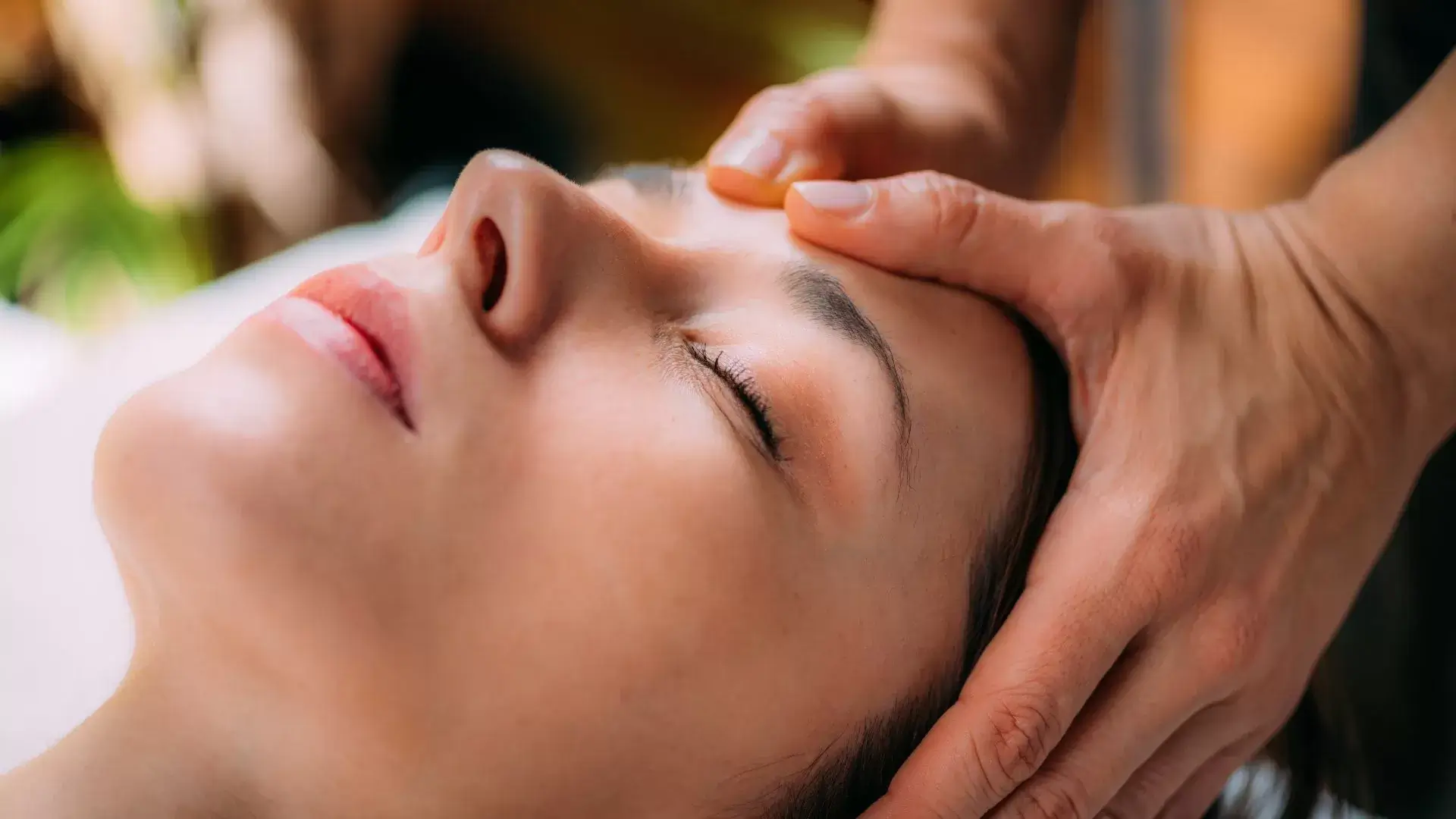We’re here to offer effective physiotherapy for tension headaches in Mississauga, tailored to fit your unique needs. Our approach combines targeted exercises and manual therapy to relieve muscle tightness and alleviate pain. By addressing triggers like poor posture and stress, we help you develop strategies for long-term relief. We also emphasize the importance of ergonomic adjustments and relaxation techniques to enhance well-being. With our support, you can gain control over your headache symptoms. If you stay with us, you’ll uncover additional insights and methods to further improve your situation.

At Mississauga Physio Chiro Clinic, we offer a thorough range of physiotherapy and chiropractic services designed to effectively address tension headaches and enhance your overall well-being. We acknowledge that headache disorders, particularly tension headaches, can greatly impact your daily life. That’s why our approach to tension headache treatment is both extensive and individualized.
Our Best Physiotherapy & Chiropractic Clinic in Mississauga employs various techniques, including trigger point therapy, to alleviate muscle tightness and neck stiffness associated with tension headaches. We also focus on stress management and relaxation techniques, helping you to reduce the frequency and intensity of your headaches. By incorporating ergonomic corrections into your daily routine, we aim to create a supportive environment for your body, minimizing the risk of recurring pain.
We believe in a holistic headache treatment approach that considers not just the symptoms, but the underlying factors contributing to your discomfort. Our physiotherapy and chiropractic services work together to promote healing and prevent future episodes. By choosing our clinic, you’re taking an important step toward a healthier, pain-free life, and we’re here to support you every step of the way. Let’s work together to reclaim your well-being and improve your quality of life.
Tension headaches are a common condition that can arise from various factors, including stress, poor posture, and muscle tension. Often referred to as stress headaches or muscle contraction headaches, these headaches typically manifest as a band-like sensation around our heads, creating discomfort that can hinder our daily activities.
One of the primary causes of tension headaches is neck and shoulder tension, which can result from prolonged periods of poor posture or emotional stress. When we hold tension in these areas, trigger points can develop, exacerbating our headache symptoms. It’s crucial to recognize headache triggers, such as excessive screen time or inadequate ergonomic setups, that might contribute to our discomfort.
In addition to physical factors, we should also consider the role of emotional stress, which can intensify muscle tension and lead to more frequent headaches. By acknowledging the connection between our physical and emotional well-being, we can better understand the underlying causes of our tension headaches. This awareness is the first step toward developing effective management strategies, helping us regain control over our health and well-being.
Exploring physiotherapy approaches can considerably enhance our ability to manage and relieve tension headaches effectively. For those of us dealing with chronic tension headaches or episodic tension headaches, tailored physiotherapy techniques can provide significant benefits. These may include targeted exercises and massage therapy to alleviate scalp pain, forehead pain, and temple pain.
One key aspect of physiotherapy is headache prevention. By identifying and addressing muscle tension and postural issues, we can reduce the frequency and intensity of stress-induced headaches. Our physiotherapists often guide us in implementing lifestyle changes that promote better posture, enhance physical fitness, and foster relaxation techniques.
Incorporating manual therapy, such as myofascial release, can also be effective in alleviating muscle tightness contributing to our headaches. Additionally, education on ergonomic adjustments at our workstations can further support our long-term relief.
Ultimately, engaging in an all-encompassing physiotherapy program can empower us to take control of our tension headaches, leading to a better quality of life. By working collaboratively with our physiotherapists, we can develop personalized strategies that not only address our current symptoms but also prevent future occurrences.
Identifying common triggers for tension headaches is vital for us to effectively manage and reduce their occurrence in our daily lives. Many of us experience tension headaches related to factors like eye strain from prolonged screen time, which can lead to discomfort and increased tension in the neck and shoulders. To combat this, we should guarantee proper workstation ergonomics, adjusting our chairs and screens to minimize strain.
Another significant trigger is jaw tension, often associated with temporomandibular joint disorder and bruxism. We can manage this by incorporating deep breathing exercises into our daily routines, promoting relaxation and reducing muscle tightness. Additionally, dehydration can exacerbate headaches, so it’s imperative for us to maintain adequate fluid intake throughout the day.

While managing common triggers, it’s important to recognize that cervicogenic and muscle contraction headaches often stem from underlying musculoskeletal issues that physiotherapy can effectively address. These headaches frequently arise from physical strain or tension in the neck and shoulder areas, leading to tightness around the head. By identifying these issues, we can create a tailored treatment plan that may include various modalities.
Physiotherapy techniques such as manual therapy, acupuncture, and targeted exercises can provide significant head pain relief. Additionally, we often incorporate stress management strategies to help alleviate the emotional factors contributing to muscle contraction headaches. For some patients, chiropractic adjustments may also be beneficial in correcting alignment and reducing tension.
Heat therapy is another effective option, promoting blood flow and relaxation in the affected areas. Furthermore, we emphasize the importance of addressing any TMJ dysfunction, which can exacerbate headaches. Through these combined approaches, we aim to not only relieve symptoms but also empower our patients with tools for long-term management. By working together, we can effectively tackle the root causes of cervicogenic and muscle contraction headaches, paving the way for a healthier, pain-free life.
To effectively reduce headaches, we must focus on easing neck and shoulder tension, as these areas often play an essential role in triggering pain. A dull headache or pressure headache commonly arises from tight muscles in the neck and shoulders. These muscle tensions can lead to occipital pain, which sometimes radiates to other areas of the head.
Many of us may experience additional factors contributing to this discomfort, such as teeth grinding, sleep disturbances, anxiety, and depression. Addressing these issues is important, as they can exacerbate muscle tension and headache frequency. Incorporating muscle relaxants can also be beneficial, but we should consult a healthcare professional before starting any medication.
Hydration plays a key role in overall health, and ensuring we drink enough water can help mitigate headache symptoms. Additionally, practicing good sleep hygiene can improve sleep quality, reducing the likelihood of tension headaches. By focusing on these aspects, we can effectively ease neck and shoulder tension, leading to fewer headaches and improved well-being. Let’s work together to implement these strategies for a healthier, pain-free life.
Jaw tension, often linked to TMJ dysfunction and bruxism, can greatly contribute to headache symptoms, making it essential for us to explore effective physiotherapy solutions. Addressing jaw tension is vital in managing tension headaches. We can utilize techniques such as myofascial release to alleviate tightness in the jaw muscles, promoting relaxation and reducing discomfort.
Incorporating cold therapy can also provide immediate relief, especially following episodes of bruxism, where clenching and grinding can exacerbate tension. Additionally, we can support our patients through cognitive behavioral therapy, helping them identify stressors and develop coping mechanisms that may contribute to their jaw tension.
Keeping a headache journal is another effective strategy we can encourage, allowing individuals to track triggers, including dietary factors that may worsen their headaches. By understanding these patterns, we can tailor our physiotherapy solutions to better suit their needs.
Ultimately, by addressing jaw tension, TMJ dysfunction, and bruxism through a thorough physiotherapy approach, we can greatly improve our patients’ quality of life and reduce the frequency and intensity of their tension headaches.
Addressing jaw tension is just one piece of the puzzle; improving posture plays a significant role in preventing recurring tension headaches. Poor posture can create head pressure and contribute to muscle fatigue, often leading to discomfort that manifests as headaches. By focusing on our posture, we can reduce the strain on our neck and shoulder muscles, which are commonly involved in tension headaches.
Physiotherapy can provide us with tailored strategies to enhance our posture, including exercises that strengthen core muscles and improve spinal alignment. Additionally, incorporating practices like yoga for headaches and meditation can help us develop better body awareness and relaxation techniques, further alleviating the risk of overexertion.
We should also be mindful of our environment. Light sensitivity and noise sensitivity can exacerbate tension headaches, so creating a comfortable workspace with proper ergonomic arrangements is essential. By working together to improve our posture, we can reduce the frequency and severity of tension headaches, paving the way for a healthier, more balanced life. Remember, small changes in how we position ourselves during daily activities can lead to significant benefits in our overall well-being.

Soft tissue therapy and myofascial release techniques can markedly alleviate the discomfort associated with tension headaches by targeting the muscle tightness and trigger points that contribute to pain. During our physiotherapy sessions, we focus on areas of tension in the neck, shoulders, and upper back, which are often culprits in generating headaches. By applying gentle pressure and stretching techniques, we help release the tight muscles, providing headache relief.
Many of us may experience dizziness or nausea as secondary symptoms of migraines or tension headaches. By utilizing soft tissue therapy and myofascial release, we can improve blood circulation and promote relaxation, potentially reducing the frequency and intensity of these headaches. While NSAIDs may provide temporary relief, addressing the underlying muscular issues can lead to long-term benefits.
Incorporating these techniques into our physiotherapy regimen empowers us to take control of our headache management. By understanding how muscle tension contributes to our discomfort, we can work together to create a personalized treatment plan. Ultimately, our goal is to enhance our quality of life by reducing headache occurrences and improving overall well-being.
To effectively prevent tension headaches, we can incorporate relaxation techniques and stress management strategies into our daily routines. By practicing deep breathing exercises, progressive muscle relaxation, and mindfulness meditation, we can alleviate stress that often triggers tension headaches. These relaxation techniques help us manage the physical and emotional aspects of stress, which is vital for headache prevention.
In addition to these methods, cognitive behavioral therapy (CBT) can be beneficial in addressing the thought patterns that contribute to stress. By learning how to challenge negative thoughts and reframe our perspectives, we can reduce our susceptibility to tension headaches.
It’s also essential to be mindful of factors like blue light exposure, which can exacerbate symptoms such as photophobia and phonophobia in those prone to headaches. Limiting screen time and taking regular breaks can help mitigate these effects.
Lastly, while cluster headaches are distinct from tension headaches, understanding our triggers can enhance our overall stress management approach. By prioritizing relaxation and stress management within our physiotherapy regimen, we can greatly improve our quality of life and reduce the frequency of headaches.
Sleep issues and fatigue can greatly contribute to the onset of tension headaches, making it essential for us to explore effective strategies for improving our rest and rejuvenation. At our clinic located at 1834 Lakeshore Rd W unit 6C, Mississauga, ON L5J 1J7, we recognize that addressing these factors is vital in managing primary headaches.
To enhance our sleep quality, we can incorporate cognitive-behavioral therapy (CBT for headaches) techniques that help us identify and change unhelpful thoughts and behaviors surrounding sleep. Additionally, we should be cautious about caffeine withdrawal and medication overuse headaches, as these can further exacerbate fatigue and tension.
Establishing a consistent sleep schedule and creating a calming bedtime routine can also be beneficial. It’s important to differentiate between tension, sinus headaches, and rebound headaches to effectively manage our symptoms. If we’re struggling with sleep, we can reach out to our team for personalized strategies to improve our overall well-being.
Reducing eye strain and digital fatigue is essential for preventing tension headaches, especially in our increasingly screen-dependent lives. We often spend hours in front of computers, tablets, and smartphones, which can lead to discomfort and headaches. To combat this, we can adopt strategies that promote eye health and overall well-being.
First, we should practice the 20-20-20 rule: every 20 minutes, take a 20-second break and look at something 20 feet away. This simple technique helps relax our eye muscles and reduces fatigue. Additionally, we can guarantee our workstations are ergonomically designed, keeping screens at eye level and at an appropriate distance to minimize strain.
It’s also important to adjust screen brightness and contrast to comfortable levels. Using blue light filters or glasses can further protect our eyes from digital fatigue. Regular eye exams will help us monitor any vision changes and get professional advice tailored to our needs.
Lastly, staying hydrated and incorporating regular physical activity can greatly contribute to reducing tension headaches. By prioritizing these practices, we can create a healthier relationship with our screens and ultimately prevent tension headaches.
Heat and cold therapy can be highly effective methods for alleviating tension headaches, as they help to relax muscles and reduce inflammation. When we apply heat to the neck and shoulders, it increases blood flow, promoting relaxation and easing muscle tightness. A warm towel or heating pad can work wonders, providing immediate comfort. We can also consider warm showers or baths as excellent alternatives.
On the other hand, cold therapy helps numb the area and can considerably reduce inflammation. By placing a cold pack or ice wrapped in a cloth on our forehead or the back of our neck, we can achieve a soothing effect. This technique is particularly beneficial during the acute phases of a headache, as it helps to constrict blood vessels, providing a calming impact.
It’s important to note that both therapies can be used in combination to maximize relief. We can start with heat to ease tension and follow up with cold to reduce any residual pain. Overall, incorporating heat and cold therapy into our routine can be a simple yet effective way to manage tension headaches and improve our overall well-being.
Incorporating mindful lifestyle and wellness changes can greatly enhance our ability to sustain relief from tension headaches over the long term. By making small adjustments to our daily routines, we can create a supportive environment for our overall well-being.
First, let’s focus on hydration. Drinking adequate water throughout the day is vital, as dehydration can trigger headaches. In addition, we should be mindful of our posture while working or using electronic devices. Maintaining a neutral spine can help alleviate unnecessary strain on our neck and shoulders.
Regular physical activity is another essential component. Engaging in gentle exercise, such as yoga or stretching, can reduce muscle tension and improve circulation. Moreover, practicing relaxation techniques, like deep breathing or meditation, allows us to manage stress effectively.
Lastly, we should prioritize sleep. Establishing a consistent sleep schedule and creating a restful environment can greatly impact our headache frequency. By adopting these lifestyle and wellness changes, we’re taking proactive steps toward managing tension headaches, ultimately fostering a healthier, more balanced life. Let’s commit to these practices together for a long-lasting relief journey.
If we’re struggling with persistent tension headaches, scheduling a consultation for professional physiotherapy in Mississauga can provide us with tailored strategies to alleviate pain and improve our overall well-being. Physiotherapists are trained to assess our specific conditions, identifying the root causes of our headaches. During our initial consultation, they’ll conduct a thorough evaluation, discussing our symptoms, lifestyle, and any contributing factors.
Based on this assessment, our physiotherapist will create a personalized treatment plan. This plan may include manual therapy, targeted exercises, and education on posture and ergonomics, all designed to relieve tension and promote relaxation. They might also guide us in implementing stress management techniques, which can considerably reduce the frequency and intensity of headaches.
Moreover, committing to regular follow-up sessions allows us to monitor our progress and make necessary adjustments to our treatment. We’ll benefit from the expertise and support of our physiotherapist, who can empower us to take control of our health. By scheduling a consultation, we’re taking a crucial step towards a headache-free life, enhancing our productivity and overall quality of life. Let’s prioritize our well-being and seek the help we deserve. Contact us today!
What makes Mississauga a vibrant city is its diverse community, rich culture, and a wide range of amenities that enhance our quality of life. Nestled on the shores of Lake Ontario, we’re proud to call this city home. With a population that reflects a mosaic of cultures, we celebrate various festivals and events throughout the year, showcasing our multicultural heritage.
Mississauga is also known for its excellent recreational facilities, parks, and trails, promoting a healthy lifestyle for all of us. The city boasts a robust public transit system, making it accessible and convenient for residents and visitors alike. We have a strong emphasis on education, with numerous schools and post-secondary institutions that cater to our growing population.
Moreover, the thriving business environment in Mississauga provides ample employment opportunities, contributing to our economic stability. As we work together to maintain a safe and welcoming community, we’re committed to supporting local initiatives that foster growth and well-being. In Mississauga, we truly believe that our city’s strengths lie in our unity and shared vision for a prosperous future.

When it comes to physiotherapy sessions for headaches, we typically find that a standard session lasts about 30 to 60 minutes. This timeframe allows for a thorough assessment, treatment, and follow-up discussion on progress. We recognize that each individual’s needs may vary, so our therapists tailor sessions accordingly. By focusing on targeted techniques, we aim to alleviate discomfort and enhance overall well-being, ensuring that each appointment is both effective and supportive.
When considering whether physiotherapy is covered by insurance, it’s important to check our specific policy details. Many insurance plans offer some level of coverage for physiotherapy services, but it can vary widely. We should reach out to our insurance provider to confirm the extent of our benefits. Additionally, we can consult with our physiotherapist, who may have insights into common coverage scenarios and can assist us in guiding through the claims process.
Yes, children can receive physiotherapy for tension headaches. It’s important to address these headaches early, as they can impact a child’s daily activities and overall well-being. We recognize that each child’s needs are unique, so a tailored approach is vital. Our trained physiotherapists evaluate the specific situation and create a personalized plan to help alleviate pain and improve function. We’re here to support families in managing their children’s health effectively.
Our physiotherapists hold recognized degrees in physiotherapy and have completed extensive training in various specialized areas. They’re licensed and regularly engage in continuing education to stay current with the latest techniques and research. We’re proud of our team’s diverse expertise, ensuring they can provide the best possible care tailored to each individual’s needs. You can trust that we’ve got the qualifications and experience to help you achieve your health goals.
When it comes to headache relief, the number of sessions we typically recommend can vary based on individual needs. Generally, we find that most patients experience significant improvements within 4 to 6 sessions. However, some may require more or fewer, depending on the severity and underlying causes of their headaches. We’ll always assess each case thoroughly, ensuring a tailored approach that best meets everyone’s unique situation and promotes effective recovery.
Reach out to us today to book an appointment or learn more about our services. Our friendly team is here to answer your questions and help you take the first step toward improved health and wellness.
(647) 372-1209

At our “Mississauga Physio Chiro Clinic”, we are dedicated to providing personalized care that addresses the root cause of your discomfort. With a team of experienced physiotherapists and chiropractors, we focus on restoring your mobility, relieving pain, and enhancing your overall well-being.